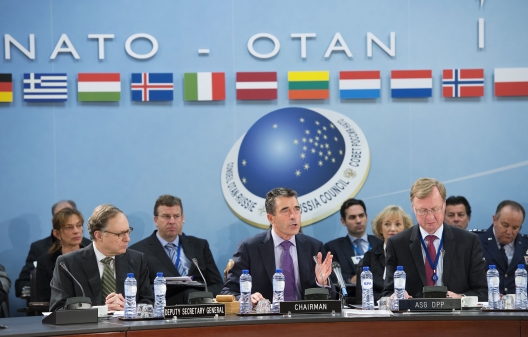 Russia’s annexation of Crimea and ongoing threats against Ukraine are a reminder to the countries of Eastern Europe, particularly those in the Balkans, of NATO’s centrality to national – indeed, European – security. But maximizing NATO’s effectiveness requires deeper engagement with and among its most vulnerable members.
Russia’s annexation of Crimea and ongoing threats against Ukraine are a reminder to the countries of Eastern Europe, particularly those in the Balkans, of NATO’s centrality to national – indeed, European – security. But maximizing NATO’s effectiveness requires deeper engagement with and among its most vulnerable members.
If any country understands the value of such engagement, it is Albania. Before the Berlin Wall fell almost 25 years ago, Albania boasted of its self-reliance, and, spurred by relentless propaganda, vilified everyone outside its borders. Then the Iron Curtain was lifted, and Albanians realized that the outside world had not spent decades plotting to invade their country. Building some 300,000 bunkers to repel an invasion by the West had perhaps been more than a little paranoid.
Albania’s perceptions of NATO underwent a similar transformation: the imperialist aggressor became a champion of democracy, individual liberty, and the rule of law. Albanians realized that, through collective defense, the Alliance preserved Europe’s peace and security.
Immediately after the collapse of the Soviet Union, the specter of disintegration loomed over the Balkan countries. Then, in 1995, NATO intervened to establish and preserve peace in Bosnia. And, four years later, NATO stopped the genocide in Kosovo. Since then, NATO has undergone three rounds of enlargement – always eastward – with Albania and Croatia being the last countries to join, five years ago. , , ,
The fact is that security black holes in Europe are growing darker and deeper. . . .
It is time for NATO to acknowledge its indispensable role – not as a security blanket, but as a security catalyst in Europe that responds to concerns about existing security gaps, many of which are having serious social and economic consequences. Postponing tough decisions regarding the Alliance’s future role and capabilities, or offering half-hearted cooperation, will not work.
Ditmir Bushati is Minister of Foreign Affairs of the Republic of Albania.
Image: NATO preserves "Europe's peace and security" (photo: NATO)
